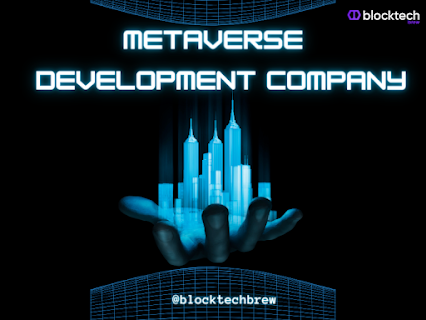Five Technologies That Power the Metaverse
Virtual Reality (VR): At the forefront of the metaverse experience is virtual reality. VR technology allows users to enter a computer-generated environment, immersing themselves in a virtual world. With specialized headsets and controllers, users can interact with digital objects and even communicate with other participants. As VR hardware and software continue to advance, the metaverse will become increasingly immersive and lifelike.
Augmented Reality (AR): Augmented reality enriches our physical environment by overlaying digital content onto the real world. While VR creates a wholly virtual experience, AR enhances our perception of reality by adding virtual elements. In the metaverse, AR technology can seamlessly integrate virtual objects, information, and experiences into our everyday lives. From interactive virtual displays to personalized digital assistants, AR in the metaverse has the potential to revolutionize how we interact with our surroundings.
Blockchain and Cryptocurrencies: Blockchain technology, along with cryptocurrencies, plays a crucial role in the metaverse's economy and infrastructure. Blockchain offers decentralized and secure systems for managing digital assets, such as virtual land, virtual currencies, and non-fungible tokens (NFTs). Through blockchain, users can establish ownership, verify authenticity, and trade virtual assets transparently. This technology enables a thriving digital economy within the metaverse, where users can create, own, and monetize their virtual creations.
Cloud Computing: The vast computational and storage requirements of the metaverse necessitate powerful infrastructure. Cloud computing, with its scalable resources and distributed architecture, provides the backbone for hosting and delivering immersive experiences to users. By leveraging the cloud, the metaverse can handle the complex rendering, processing, and storage needs of a massive virtual universe. Cloud-based platforms enable seamless collaboration, synchronization, and scalability, making the metaverse accessible to a wide range of users.
Artificial Intelligence (AI): Artificial intelligence technologies bring intelligence and interactivity to the metaverse. AI algorithms can power realistic avatars, intelligent non-player characters (NPCs), and dynamic content generation within the virtual world. Natural language processing, computer vision, and machine learning algorithms enhance the metaverse experience by enabling realistic interactions, personalization, and intelligent decision-making. AI-driven advancements will make the metaverse feel more lifelike and adaptive to individual users' preferences and behaviors.
Conclusion:
The metaverse represents a bold vision for the future of digital experiences, and it relies on several key technologies to bring this vision to life. Virtual reality, augmented reality, blockchain, cloud computing, and artificial intelligence collectively power the metaverse, enabling immersive, interactive, and decentralized virtual environments. As these technologies continue to advance, we can expect the metaverse to evolve, revolutionizing how we work, play, socialize, and create in the digital realm. The metaverse holds immense potential, and its realization depends on the continued innovation and collaboration across these transformative technologies.
What are the types of metaverse platforms that BlockTech Brew builds?
BlockTech Brew, a leading metaverse development company, has a team of expert developers skilled in creating hyper-realistic, fully functional metaverse spaces. The types of metaverse spaces BlockTech Brew builds include:
Metaverse NFT marketplaces
Blockchain-based metaverse games
Metaverse avatars
Metaverse decentralized payment solutions
Metaverse digital twins and simulations
It is, however, not an exhaustive list; there is much more in BlockTech Brew’s offerings.



Comments
Post a Comment